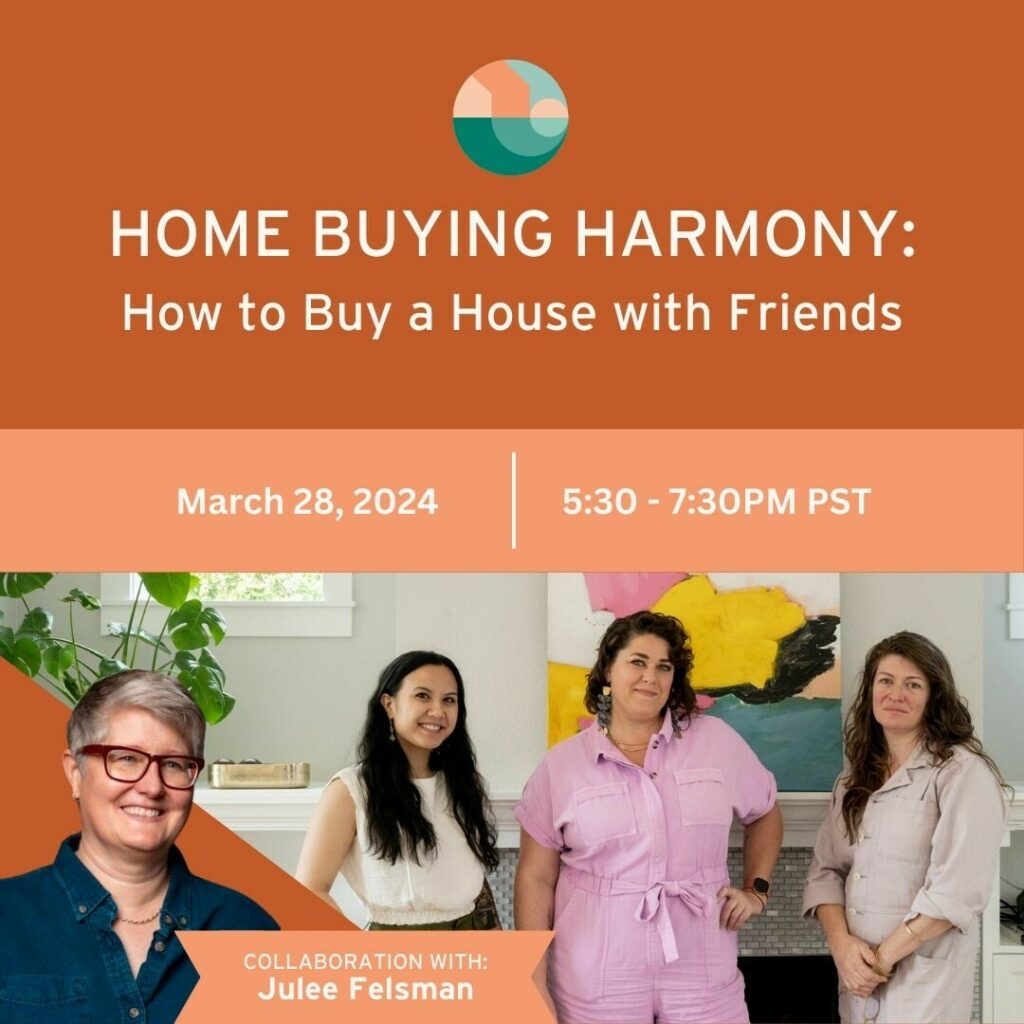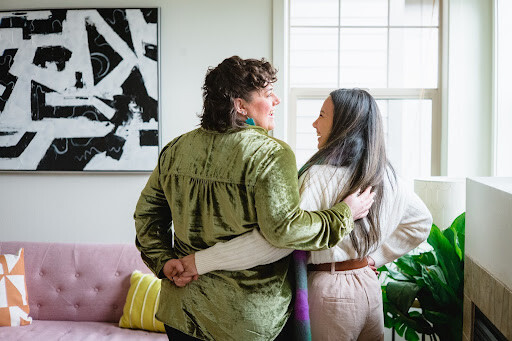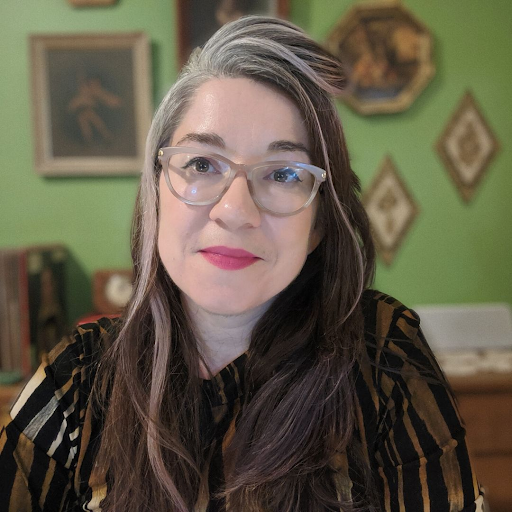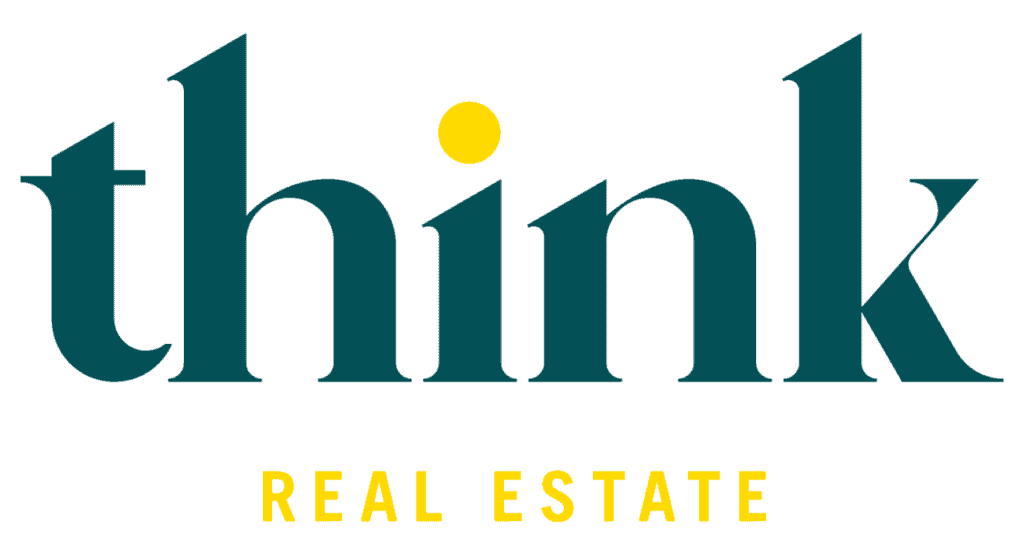Buying property with friends is a topic close to my heart because, let’s face it, housing affordability SUCKS and we gotta get creative. For some folks, teaming up with friends, family, coworkers, or lovers is the only option — and hey! That’s an AMAZING option.
Making the dream of buying a house with friends into a reality isn’t just a numbers game. It requires us to fundamentally break down how we talk about money.
That’s why I had the INCREDIBLE anti-capitalist money coach, Hadassah Damien (@ridefreefearlessmoney) join me for an IG Live sesh where we spilled the beans on handling those tricky conversations.
So hold on tight as we dive into the real deep-rooted issues and triggers around money and social dynamics — because that’s the JUICY shit we like over here!
If you’re new here, I’m Lauren Goché — a Portland realtor with a decade of experience backing me up. Which means I’ve weathered more than a few market shifts over the course of my career, and specialize in making sure you can make the most of the market for your goals. Read more about me here.
Meet Hadassah Damien (she/they)
I stumbled on Hadassah’s IG @ridefreefearlessmoney years ago and was like, “Yup… This is my jam.” She’s been dishing out wisdom on buying a house with your friends for YEARS
I like to describe her as an anti-capitalist financial coach, but let me share her own words:
“I work with people who are suspicious of capitalism — for very good reasons — and often that includes artists, creatives, and individuals who’ve faced marginalization due to their sexuality, gender, or race. We figure out how to not only survive, but thrive, within a system that is just chock full of inequalities.”
Hadassah is a true expert at handling difficult money conversations. I highly recommend you check out her amazing blog, and get on her newsletter here — I make it a point to devour every single one because they’re just that good.

JOIN OUR WORKSHOP IN MARCH!
We’ve cooked up a workshop specifically for those of you with dreams of owning a home alongside your pals but feel overwhelmed by the process.
My team and I joined forces with the mortgage lending legend, Julee Felsman (@workshopmortgage), to bring you the ultimate expert guide to navigating the exciting world of co-buying.
Hope to see you and your besties there!
How the Heck Do We Talk About Money?
If you’ve been following along, you’ll know that buying with friends is one of my favorite topics.
Why you may ask? Because housing is straight up unaffordable, and for some people, going in with friends and family is the only option (and it’s now easier than ever.)
As a realtor – and a damn good one at that – I know the nuts and bolts about how to make buying with your friends happen, but the thing that truly fascinates me?… How the heck do we talk about money?
That’s where Hadassah comes in. She’s quite literally an expert at coaching people through having productive conversations around money:
“I like to say that everybody can use a calculator. We all have them on our phones. But that’s not usually the hard part when we’re trying to buy things with other people.”
It’s those tricky questions like: how do I talk to my friend about the fact that I make more money than them?… Or that I feel uncomfortable that my friend has more money than me?
Even with a heap of love between you, it’s a hard conversation to have.
There’s a real concern about shaking up the social dynamics of your relationship when it comes to money talks. We’ve been wired to steer clear of those conversations, and my bet, or at least what I’ve noticed, is that rich people are groomed to handle those money chats, while the rest of us are taught it’s off-limits. We really need to ask ourselves why that’s the case.
One thing Hadassah and I truly believe is that learning how to have constructive conversations around money is truly empowering:
“When we exchange that kind of information with people we might want to buy property with, it allows us to realistically say how much we can actually buy. And if somebody has deep pockets from their family, there’s no shame in that… but you all have to know so that you can make a reasonable decision and know what’s possible and feasible.”
Our main takeaway:
Transparency about money enables us to make decisions on how we want to do things.
Learning How to Evacuate Money Shame
When diving into the money talk, we often focus on the practical side. But money is more than just numbers — it’s a tangled web of emotions shaping our financial choices. To have an honest and productive money convo, you need to start doing what Hadassah coined as evacuating shame.
My nutritionist (Shout out Whitney Hull-Benson!) once told me:
Shame is like a parasite in your body, it doesn’t belong there. We’re not born with it.
For me, shame was the external world whispering that something was off. Guilt? that’s like, “Oops, I made a mistake,” but shame? It’s an invasive force.
So now I’ve got this internal radar always checking, “Is this guilt or shame?” Because to me, they’re vastly different.
If it’s guilt — I need to fix something.
If it’s shame? Fuck that!
And when it comes to money… Oh yeah, there’s a heap of shame that I’m still working through.
I always tell people that being a realtor is counseling. Buying a house touches on shit we have no control over. It touches on shame around money, financial security, family dynamics, housing security, safety – all those deep fears and hopes rolled up into one intense life moment.
Buying a home with friends is going to touch on all of those things, but there will also be a relationship on the line. So, we gotta evacuate our shame around money in order to make this work!
Breaking the Conversation Down into Three Phases:
Phase 1: Getting in
This is when you lay it all out and discover the unique strengths each of you brings to the co-buying table. To buy a house in general you need:
- A down payment
- An income
- Your credit scores
- and your debt-income ratio
The typical scenario I see when working with a co-buying situation is one person has the income and the other has the down payment. And let’s say someone has worse debt or worse credit score than the other, you have to sit down and figure out how these things work together and what you can afford together.
The big questions at this stage:
- How do we handle differences in credit scores?
- How do we handle differences in financial capacities?
- What can each of us bring to the table?
- What if one of us starts earning more, does that change the agreement?
Phase 2: Being in
So, you’ve hypothetically snagged that dream home, and now it’s time to get down to the real business — ongoing maintenance costs and those larger expenses. We’re moving from dreamy ideals to the practical details that define co-ownership.
Talking about money opens up a whole new realm of practical questions. To get into this, you’ll need to play with some hypothetical numbers. Estimating ongoing maintenance costs isn’t a perfect science so the goal is to have some ballpark numbers to work with, even if they’re just back-of-a-napkin calculations. Here’s what Hadassah has to say:
“Talking about the money unlocks some of these really practical, tactical questions. You don’t have to have the exact numbers to have this conversation. You’re surfacing assumptions. You start talking about it, and then each other’s hidden assumptions start coming out — maybe somebody thought they could pay less in mortgage but handle all the lawn care — but you would have never known that if you didn’t talk about the specifics.”
While it’s impossible to predict every possible scenario ahead of time, Hadassah encourages focusing on these big questions at this stage:
- How do we plan to cover ongoing maintenance costs?
- Is it an equal split, or does it vary based on our incomes?
- What if someone contributes differently, say by taking on yard maintenance?
These are the big Qs that will get the ball rolling on surfacing those assumptions, making your co-ownership journey smoother and more aligned with each other’s expectations.
Phase 3: Getting out
Here’s where we untangle the final chunk of assumptions. This phase is where you figure out what to do if someone wants to exit and how you will handle the appreciation on your property.
Some opt for a straightforward split of appreciation. For example, if someone adds an ADU, they may rightfully want that value attributed to them.
And when it comes to tracking contributions, different co-buying partners will have different preferences. Hadassah’s had clients who kept a meticulous record of who chipped in for the mortgage, labor, maintenance, and invested time for several years — and it worked great for them!
The big questions at this phase:
- How do we structure things if one of us wants to exit?
- How do we deal with appreciation?
- How will we track appreciation and the individual value each of us brings to the property?
Given the prolonged timelines in real estate (we’re talking 5-7 years, but longer is even better), it’s not just about prepping for a potential buyout. It’s also about warding off confusion and resentment down the road.
“My goal is for people to have an outline of their agreements so they know what they need going in, what they will need being in, and what they want to know ahead of time about getting out.” — Hadassah
What You Should Have by the End of It
So now you have a hashed out agreement between you and your co-buying buddy, what should you do with it? Do you make it into a written agreement? Does it get notarized, or will it be a living document?
Here’s what Hadassah likes to do: “I prefer to work on a tighter timeline. We will do a workshop where we make your agreement and I’ll give you some homework ahead of time so we can be really effective together. Then you leave with a draft document and it’s your decision to get it notarized or not.”
This document should have a clear framework on what to do if a big life change happens. What if someone gets a disability? Or if someone gets a new job and a big raise? What about if someone wants to move their partner in?
Hadassah shared her mindset on this, and I love it:
“I come from a family of conservative evangelical Christians—some great, some not so much. And I like to say, what would you need to have in place if, let’s say someone like me, your friend, got hit in the head and suddenly turned into a mean christian? What preparations do you need? Or, God forbid, if one of us were to pass away, and the less scrupulous part of our family tries to intervene. What do we need to set up in order to protect each other?”
At the end of the day, even if you’re buying a house with someone you’re not having sex with, it’s still a long-term relationship. You should revisit your agreement every. single. year. to see if you still align with it — or maybe more than that because people change and relationships change. Here’s Hadassah expert advice:
“Say somebody lost a job, or prices went up by 10-20% and our budgets don’t cover what they used to… We want to have those conversations when things aren’t hard. Just once a year or twice a year, stopping and saying, ‘Hey, how’s this going?’ will help you set solid patterns so that when things are hard, you have a solid framework.”
When it comes to life, it seems like communication is always weirdly the key…
How to Work with Hadassah
Whether you’re navigating financial transitions, on a sabbatical, or diving into the intricacies of co-ownership, Hadassah offers tailored coaching to suit your needs.
Her services include:
- Individual Coaching: Ideal for those in financial transitions or seeking a one-time session. Particularly helpful for those entering the “getting in” conversation.
- Tune-Up Sessions: Perfect for individuals or couples who have already ventured into joint property ownership and seek a refresher on agreements.
Pricing:
- Couples: 2 hours for $400
- Group (3 people): A 3-hour session split into 2 parts for $500
Explore more about her coaching here.
What Hadassah ultimately wants is for people to have these conversations. If you’re ready to dive in, she offers a digital workshop focused on creating money plans for couples. Check it out here.
Wrapping Things Up…
When buying a home with friends, money isn’t just a transaction — it’s a conversation. So, let’s keep the dialogue alive, keep revising, and keep building. Here are the key takeaways:
- Money Talks Empower: Discussing finances is more than numbers; it’s about making informed decisions that empower you.
- Shedding Money Shame: Recognizing and evacuating money shame is crucial for open and honest conversations that lay out the framework for your co-buying situation
- There are three critical phases of surfacing assumptions:
- getting in: who has the down payment, who’s bringing the income? How do we deal with credit score differences and debt?
- being in: how will we deal with ongoing maintenance costs and larger expenses?
- getting out: how do we exit? How will we handle property appreciation and track the value each person has put in.
- Regular Revisions: Regularly revisiting co-ownership agreements is essential for staying aligned and avoiding resentment down the line.
If you are set on making your dream of buying with a friend (or family, or coworker, or polycule) a reality, don’t hesitate to reach out to me and my experienced team — Let’s start the ride!







